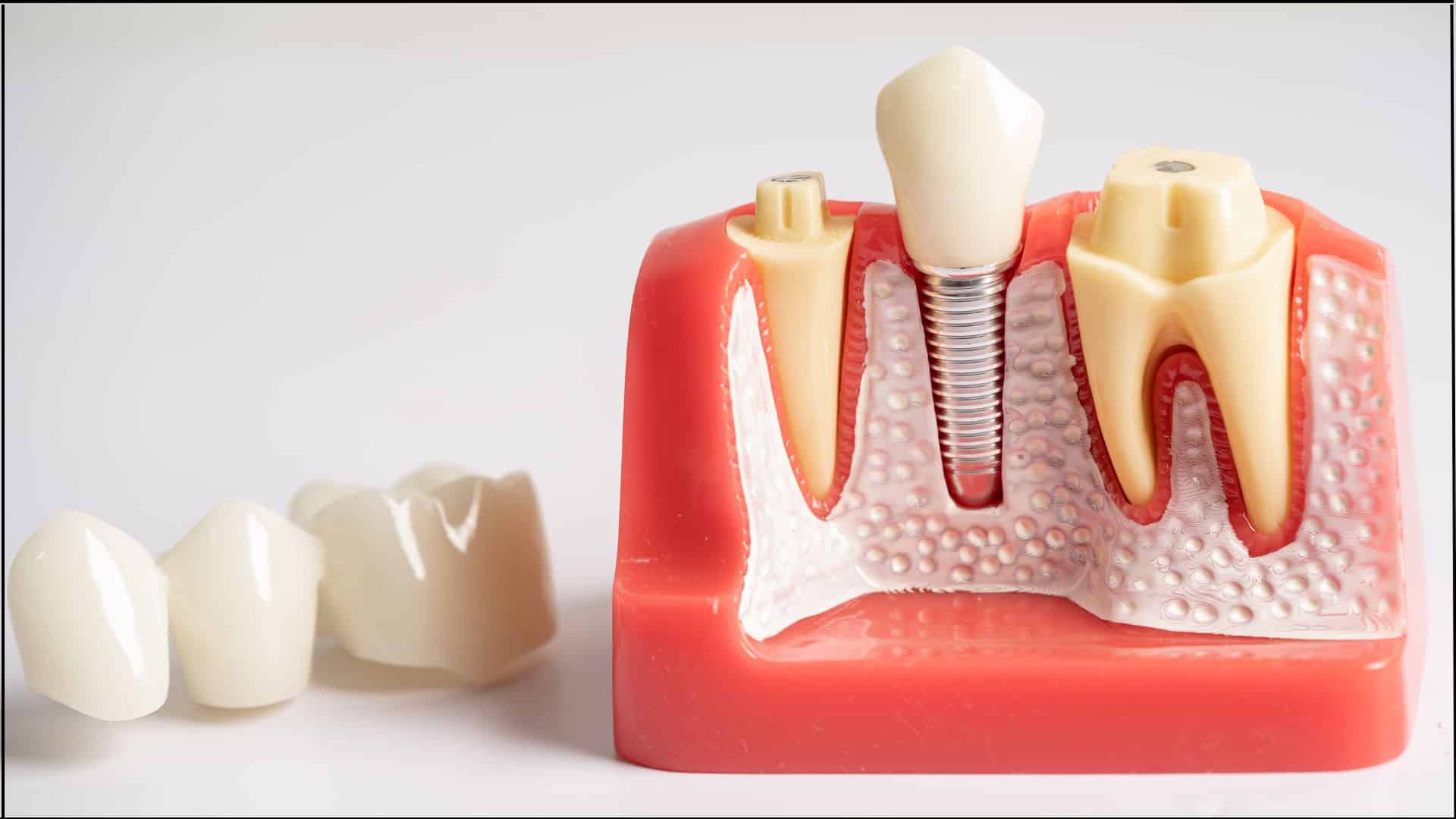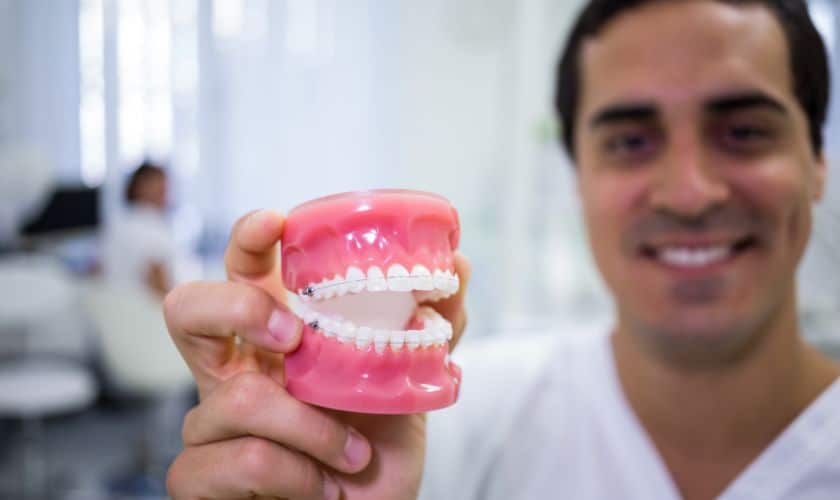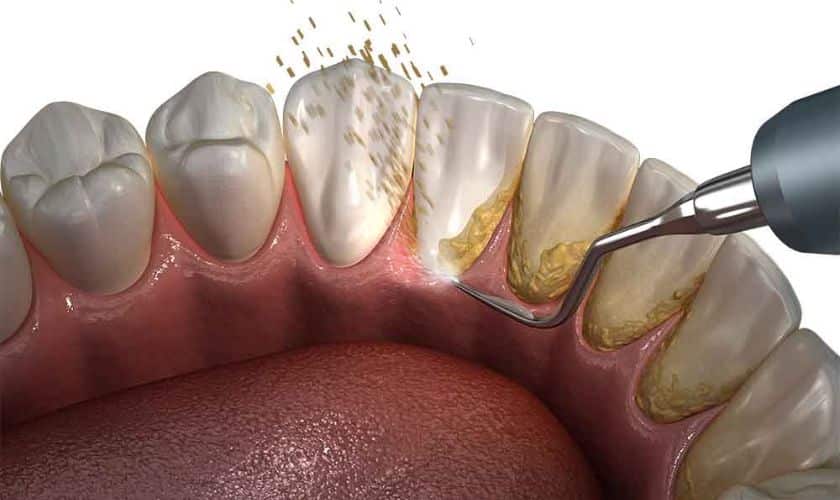
June 13, 2023
A smile is one of the first things people notice about you. But what if your teeth are damaged, discolored or misshapen? That’s where dental crowns come in – a versatile and effective solution for restoring your smile. The dental crown procedure can seem daunting at first, but with the right information and preparation, it doesn’t have to be. In this blog post, we’ll guide you through everything you need to know about getting a dental crown: from why you might need one in the first place to how to care for it once it’s in place. Get ready to flash that new-and-improved grin!
Why might you need a dental crown?
A dental crown is a tooth-shaped cap that covers the visible portion of a damaged or decayed tooth. There are many reasons why you might need a dental crown, ranging from cosmetic to functional issues.
One common reason for getting a dental crown is to restore the shape and appearance of a broken or chipped tooth. A crown can also be used to cover up stains or discoloration that cannot be corrected through whitening treatments.
Another important reason for getting a dental crown is to protect teeth that have been weakened by extensive decay, root canal treatment, or large fillings. Crowns provide an added layer of protection against further damage and help preserve the natural tooth structure.
In some cases, dentists may recommend crowns as part of orthodontic treatment plans. If you have misaligned teeth or bite issues, crowns can help reposition teeth and improve overall oral health.
Whatever your specific needs may be, consulting with your dentist is essential in determining if a dental crown procedure could benefit your oral health long-term.
The dental crown procedure
The dental crown procedure is a common treatment used by dentists to restore damaged or weakened teeth. The process begins with the dentist numbing the affected area and preparing the tooth for the crown. This involves removing any decayed or damaged parts of the tooth, shaping it to fit the crown, and taking an impression of it.
The next step is creating a temporary crown which will be worn until the permanent one is ready. The impression taken earlier helps design a custom-fit permanent crown that matches your natural teeth in size, shape, and color.
Once completed, you’ll return to have your new porcelain or ceramic dental crown placed on top of your old tooth using a special cement that sets quickly under ultraviolet light. After this process finishes up successfully, there may be some slight discomfort due to numbness wearing off but should disappear after 24 hours.
Getting a dental crown can greatly improve both function and appearance of damaged teeth while also preventing further complications such as cavities or infections from arising in the future!
After the dental crown procedure
After the dental crown procedure, it’s normal to experience some sensitivity or discomfort in the treated tooth. This usually subsides within a few days, but you can take over-the-counter pain relievers if necessary.
You should avoid eating hard or sticky foods immediately after getting a dental crown. Instead, stick to soft foods and chew on the opposite side of your mouth until the permanent crown is placed.
It’s essential to maintain good oral hygiene after the dental crown procedure by brushing twice a day and flossing daily. You may want to use an antibacterial mouthwash as well.
If your temporary crown comes loose or falls off before your next appointment, contact your dentist right away. They may be able to reattach it or provide a new one if necessary.
Attend all scheduled follow-up appointments with your dentist so they can ensure that everything is healing properly and monitor any potential issues. With proper care and maintenance, your dental crown can last for many years!
Tips for caring for your dental crown
Proper care and maintenance of dental crowns are essential to ensure their longevity. Here are some tips for caring for your dental crown:
1. Brush and floss regularly: It’s important to maintain good oral hygiene by brushing twice a day and flossing at least once a day, especially around the area where the crown meets the gum line.
2. Avoid hard or sticky foods: Try to avoid chewing on hard objects like ice cubes or biting down too hard on sticky foods like caramel as they can cause damage to your crown.
3. Wear a mouthguard during sports: If you play contact sports, it’s essential to wear a custom-fitted mouthguard that will protect both your natural teeth and your dental crown from any potential impact.
4. Regularly visit your dentist: Your dentist will monitor the condition of your dental crown during regular check-ups and cleanings, making sure there is no decay or other problems affecting its integrity.
5. Avoid using tobacco products: Smoking or using other forms of tobacco can increase the risk of gum disease, which can ultimately lead to tooth loss including those with crowns.
By following these tips, you’ll be able to keep your dental crown in tip-top shape for years to come!
How long does a dental crown last?
One of the most common questions people have about dental crowns is how long they can expect them to last. While there’s no definitive answer, a well-cared-for crown can typically last anywhere from 5 to 15 years or more.
The lifespan of your dental crown will depend on several factors, including the materials it’s made from, how well you take care of it, and whether or not you grind your teeth or have any underlying oral health issues.
Porcelain crowns tend to be more fragile than metal ones and may need to be replaced sooner. However, porcelain-fused-to-metal (PFM) crowns are often a good compromise between durability and aesthetics.
To help extend the life of your dental crown, it’s important to practice good oral hygiene habits like brushing twice daily with fluoride toothpaste and flossing regularly. You should also avoid chewing on hard objects like ice or using your teeth as tools.
If you notice any signs of wear or damage to your crown such as chips, cracks, or looseness, make sure to schedule an appointment with your dentist right away. Early intervention can often prevent more serious problems down the line.
The Bottom Line
A dental crown is a common procedure that can help improve the appearance and functionality of your teeth. Whether you need to repair a damaged tooth or simply want to enhance your smile, a dental crown may be the right option for you. During the procedure, you can expect your dentist to take impressions of your teeth and place a temporary crown while waiting for the permanent one. Afterward, it’s important to follow proper care instructions such as avoiding hard foods and practicing good oral hygiene habits.
With proper care, your dental crown can last for many years. However, it’s important to schedule regular check-ups with your dentist to ensure its longevity and detect any potential issues early on.
Recent Posts

Top Benefits of Using a Sedation Dentist in the Portland Area

Missing Teeth? How Dental Implants Can Restore Your Smile

Oral Cancer and Dental Professionals: The Frontline of Defense

Fresh Breath Quest: Knowing When to Seek Dentist Help for Bad Breath

